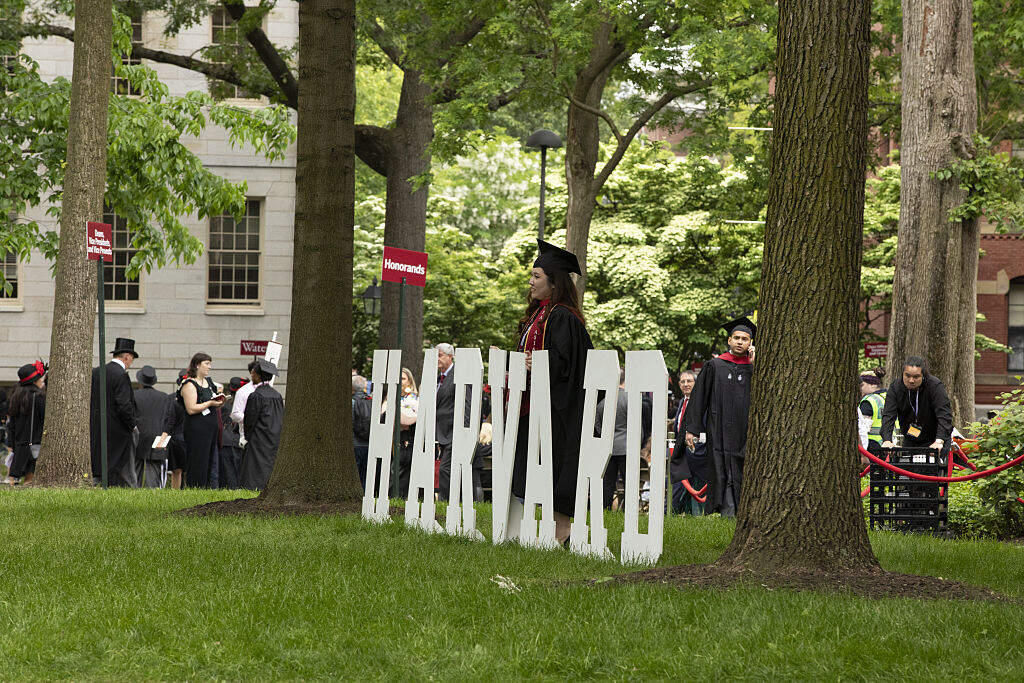Science
Universities Demand Public Funding for Sustainable Innovation

The recent cuts to federal research funding initiated by former President Donald Trump have sent shockwaves through the academic community in the United States. Even prestigious institutions such as Harvard University, Stanford University, and the Massachusetts Institute of Technology (MIT)—with endowments totaling tens of billions of dollars—have been compelled to revise budgets and delay vital projects. This shift underscores a critical realization in academia: private donations and endowment income cannot substitute for consistent government support.
The impact of these funding decisions has been profound, shaking the foundations of the American research ecosystem. It serves as a pertinent lesson for countries worldwide, emphasizing that public funding is not merely a charitable gesture; it is an essential investment in a nation’s knowledge economy.
Public Support as the Foundation of Research
A robust university system, whether public or private, relies on predictable government funding. In the United States, elite institutions like Stanford, MIT, and Caltech receive hundreds of millions of dollars annually from federal agencies. Each research grant typically includes an overhead of 40 to 60%, which is crucial for maintaining laboratories, staffing, and compliance systems. This support sustains the infrastructure vital for conducting research.
In contrast, the approach taken by India highlights a stark difference. Research grants in India often lack sufficient overhead provisions, with public institutions receiving less than 10%. Private universities may face additional requirements, such as co-funding, to qualify for government grants. This creates a negative overhead environment where universities must exhaust their own resources to engage in research projects.
Consequently, many private institutions in India hesitate to pursue government-funded projects due to financial constraints. Without adequate overheads, universities struggle to maintain advanced laboratories, attract skilled staff, and develop compliance systems. This policy flaw has hindered India from cultivating a strong and sustainable research culture across both public and private sectors.
The Importance of Balanced Financing
While universities should strive for financial resilience, expecting them to be entirely self-sustaining is unrealistic. Governments must shift their expectations, moving away from demanding self-sufficiency from universities. Institutions that rely solely on government grants risk stagnation, while those depending only on private funding may lose academic freedom. The objective should be a balanced approach that promotes responsible diversification.
Diversification can take various forms. Universities can bolster endowments, encourage alumni donations, develop continuing education programs, license intellectual property, and spin off startups based on research. While these activities enhance resilience and societal relevance, they cannot supplant the need for stable public funding.
Government support provides the continuity and confidence essential for long-term innovation. It enables universities to undertake projects with impacts that may take years or even decades to materialize. Industry funding, while valuable for its practical relevance, often aligns with corporate interests and is typically short-term. Philanthropic contributions provide flexibility but can fluctuate with economic cycles. Only government funding offers the stability necessary for groundbreaking research.
When governments withdraw their support, universities often shift to business-like operations. They may increase tuition fees, reduce faculty numbers, and concentrate on revenue-generating programs. This shift can ultimately undermine both excellence and access to education. Students from lower-income backgrounds may find themselves excluded, while researchers become increasingly risk-averse.
With its higher education system still developing, India cannot afford to tread this path. The culture of alumni giving and endowment building is nascent, and expecting self-sufficiency without a supportive financial framework is neither just nor practical. Government funding must remain the bedrock of research, accompanied by accountability and a push for diversification.
Research grants must include realistic overheads for both public and private universities. Without adequate support, institutions cannot establish the administrative and technical foundations necessary for world-class research. Additionally, India must recognize that funding research is a long-term investment in the nation’s future. Every rupee spent on research generates value through innovation, job creation, and technological advancement.
The return on investment in universities manifests as economic growth, intellectual capital, and national strength. The most successful higher education systems view public and private universities as integral components of a unified ecosystem rather than isolated entities in competition with one another.
The funding cuts introduced by Trump served as a vital reminder to American universities that autonomy cannot equate to isolation. True independence necessitates steady public support, providing the financial stability needed for intellectual freedom. India would benefit from absorbing this lesson: the state must underpin education and research while fostering efficiency, transparency, and responsible diversification.
Universities can foster confidence, but they cannot be entirely self-supporting. Their primary role is to serve society, not to operate solely as business entities. The critical question is not whether universities can sustain themselves financially, but whether a nation can thrive without investing in its educational institutions.
-

 World4 months ago
World4 months agoSBI Announces QIP Floor Price at ₹811.05 Per Share
-

 Lifestyle4 months ago
Lifestyle4 months agoCept Unveils ₹3.1 Crore Urban Mobility Plan for Sustainable Growth
-

 Science4 months ago
Science4 months agoNew Blood Group Discovered in South Indian Woman at Rotary Centre
-

 World4 months ago
World4 months agoTorrential Rains Cause Flash Flooding in New York and New Jersey
-

 Sports4 months ago
Sports4 months agoBroad Advocates for Bowling Change Ahead of Final Test Against India
-

 Top Stories4 months ago
Top Stories4 months agoKonkani Cultural Organisation to Host Pearl Jubilee in Abu Dhabi
-

 Science4 months ago
Science4 months agoNothing Headphone 1 Review: A Bold Contender in Audio Design
-

 Top Stories4 months ago
Top Stories4 months agoAir India Crash Investigation Highlights Boeing Fuel Switch Concerns
-

 Sports4 months ago
Sports4 months agoCristian Totti Retires at 19: Pressure of Fame Takes Toll
-

 Business4 months ago
Business4 months agoIndian Stock Market Rebounds: Sensex and Nifty Rise After Four-Day Decline
-

 Politics4 months ago
Politics4 months agoAbandoned Doberman Finds New Home After Journey to Prague
-

 Top Stories4 months ago
Top Stories4 months agoPatna Bank Manager Abhishek Varun Found Dead in Well









